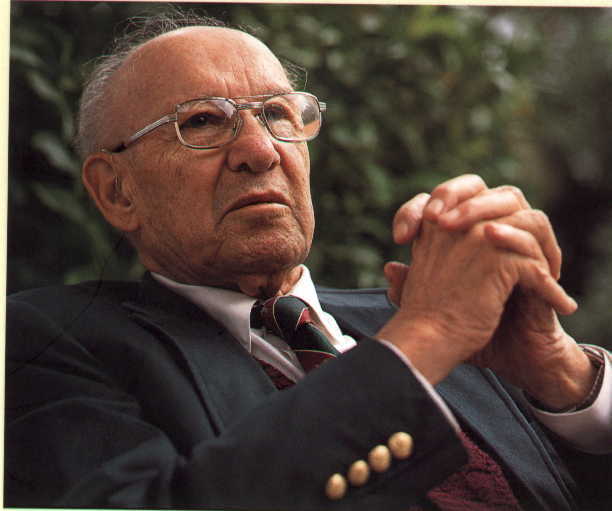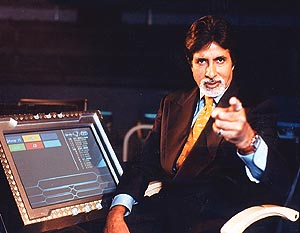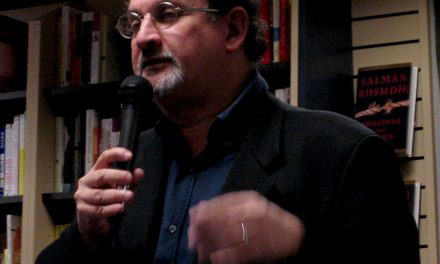 Two years have passed since Peter F Drucker passed away. Jerry Thomas reviews the initial books of Peter F Drucker and notes the concerns behind the management concepts.
Two years have passed since Peter F Drucker passed away. Jerry Thomas reviews the initial books of Peter F Drucker and notes the concerns behind the management concepts.
Among all the management thinkers, few can claim the stature of Peter F Drucker. Some consider him in the league of great Western philosophers like Plato, Aristotle or Isaac Newton who were singularly responsible for the systematization of their disciplines. Charles Handy, the British writer once noted that "virtually everything (in management) can be traced back to Drucker". John Byrne writing about management gurus in Business Week ('Managements New Gurus' August 31, 1992) substantiated this observation.
Byrne pointed out that five major schools of thought considered by executives and academics as models of management in the 21st Century have their roots in Drucker's concepts. Empowerment can be traced to management by objectives, learning organization to the knowledge worker, reengineering to the identification of traditional, transitional and transformational phases of corporation, organizational architecture to the idea that structural design follows strategic purpose and core competencies to the central knowledge excellencies. The new management gurus are then adding on to what Drucker already wrote thereby making it more relevant now. Therefore, it becomes significant in Management Studies to understand the context at which these ideas were first proposed.
Drucker did not begin his career as a management guru. Drucker was first a social critic. The tumultuous situations of 1930s shook the young Drucker. The rise of totalitarianism, its widespread acceptance in many parts of Europe and the following international turmoil compelled Drucker to analyze the conditions by which these flourish. His first book 'The End of Economic Man' (1939) was a result of such study.
Biblical Concerns
In 'the End of Economic Man' Drucker took a multidisciplinary approach to do an analytical survey of the modern world that led to 20th century disaster. Drucker found that the industrial age have created a society of organizations. Many of the public functions were entrusted in the hands of these organizations. However, according to Drucker, these organizations by reducing human being to cog in a wheel, stole their dignity that Bible has given them. Corporates exercised a considerable amount of power over the life of an individual which to Drucker was not legitimate.
According to Drucker the foremost reason for all these was the secular doctrine of economic man which declared its sole allegiance to capital. He focused on the inadequacies of all isms (capitalism, socialism, fascism and communism) in suggesting an alternative. He even blamed the liberal Churches for failing both in their spiritual and pastoral missions. He wrote that those Churches, rather than teaching about personal accountability to the Supreme Being in the afterlife and propagating of importance of human dignity under law as a security against the materialistic expectation, have become a place for social event and empty rituals. He concluded that totalitarianism promised to give non-economical reasons for human beings to connect with each other thereby attempting to restore the lost dignity of the individual. However, in the end, this solution was much worst than the problem it tried to solve as evidenced in the history.
In 'the Future of Industrial Man (1942) Drucker began to probe how the individual freedom can be preserved in an organizational society in the context of managerial power and how this managerial power can be legitimately exercised. Drucker further explained this in the 'Concept of Corporation'. Regarding the individual freedom in the industrial society, Drucker wrote "He is not a human being in society but a freely replaceable cog in an inhumanly efficient machine" (Concept of Corporation, P.g 4). And with reference to the power of corporation, Drucker pointed out "The central fact in the social crisis of our time is that industrial plant has become the basic unit but that is not yet a social institution (Concept of Corporation, P.g 250). According to Drucker the managerial power that was not derived from social consent was incapable of producing good rulers. The key to create a legitimate society was to make society depended on the core transcendal value which to him was derived from the Bible.
Management Concepts
With this backdrop, 'The Practice of Management', addressed a few questions and suggested some answers which later became Drucker's famous concepts. Drucker began to ask about the function of profit. To many then and even now, profits are the main and sometimes the sole reason for the very existence corporation. Drucker took serious exception to that. To Drucker, it is given that corporates should make profit even if it is run by saints otherwise they would not last. But to make it as the sole measure of corporate performance and the reason for its existence was both inadequate and immoral. Profits as a measurement was inadequate to identify the new opportunities, the development of human assets, and the risks involved. Drucker considered that existence for the sake of profit alone is a vice whether it is practiced by an individual or a corporate. Drucker suggested eight objectives that are mandatory for a firm irrespective of its size. Those are: Market standing, productivity, physical and financial resources, innovation, profitability, worker contribution, managerial performance and public responsibility. A balance of all these objectives according to Drucker was essential for a successful firm. Here the profit becomes the result of these objectives but not the cause for a firm's existence.
Another insight that Drucker suggested was the Management by Objectives (MBO). An important aspect of this is the upward communication in which each manager explains the objectives of his or her s
uperior and sets objectives that are achievable. The superior reviews all these objectives, negotiate with the subordinates and collates all the objectives and parameters for performance. Then, superior communicates all these objectives and train the subordinates to achieve these objectives. He or she also ensures that all known obstacles are removed, assess the performance from time to time and takes corrective actions to achieve desired results. Drucker believed that this process would give dignity, freedom and responsibility to every employee.
However, with all these freedom, Drucker also wrote about personal responsibility and leadership responsibility. To Drucker, freedom was not a license to do anything but right to choose between the correct ways of doing and being accountable both internally and externally. This also requires a leadership which takes up responsibility for results and sets an example for others with integrity.
All these seem like commonsense now. The Wall Street Journal summarized the essentials of Peter Drucker by writing, "Peter Drucker's legacy includes simple advice: It is all about people" (The Wall Street Journal, November 14, 2005). By knowing Drucker's worldview, we might say it is all about people who are created in the image of God with dignity, freedom, integrity and responsibility. The success of Drucker was in advancing these concerns through his management concepts.
To know Peter Drucker's personal faith and its impact on management, please read Peter Drucker: Faith and Management
{moscomment}







